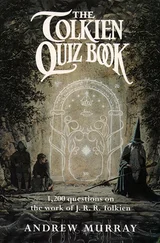“Don’t sleep,” he warned himself. “You won’t wake up.”
There was a drip in his ears that echoed the sound of the melting icicle. Maybe his blood pressure was soaring. He should be watching that. Sometimes he heard his blood pushing on his ears. It sounded like even footsteps in the snow. Push. Push. There was a warmth extending from his feet up to his knees. He looked at his boots — duck boots from L. L. Bean. His feet seemed unattached. They could have been anyone’s feet. His hand was resting on the arm of the love seat, which was fraying, trying to return to its original jumble of twigs. Jim regarded the spots on his hands, his fingers which were no longer straight, each headed in its own direction, his nails cracked and yellowed from a life spent in the stomachs of planes, under cars, prying apart riding mowers. Maybe that melting icicle echoed the drip of gasoline or oil from some tank that was no longer sound. Jim’s nostril hairs were freezing. He watched the gull beat in place, first at ease, then with effort. Now it was being blown tail first, reeling in the face of the wind as if the earth were winding in reverse. The wind chimes beat against the house.
Was it possible that this dripping was him, something inside, wasting away? Some pipe that had rusted over the years? His faulty plumbing? Or maybe something from the war?
Jim had shipped out to the Philippines from San Francisco in November of 1941. He’d watched the other guys hugging their girlfriends after some wild nights — guys who had made the most of an opportunity where no girl would say no. He’d said his one goodbye, to his mother, weeks earlier, in New Hampshire. The leaves had turned red only in places. Everywhere Jim looked was lush and green. This last moment of summer seemed unreal, made him want to hold his breath. His hair was buzzed short and the sun felt good on his scalp. He was now Pfc. James T. Darcy of the 17th Pursuit Squadron, USAAF. The air force had a romantic pull.
“I don’t like this flying around,” his mother had said. “Stay on the ground where you belong.” But Jim wasn’t going to fly any planes, only fix them, and this had calmed her down.
The 17th Pursuit was stationed at Nichols Field, just south of Manila. Jim, like everyone else, had been stunned when the Japanese started bombing. No one did anything at first, just looked at the sky waiting for something more believable to come along. Jim watched a Japanese Zero cruise low, the bombs walk the length of the runway — BOOM, BOOM, BOOM — just like a giant stepping down the line. Pilots sprinted to their planes, only to see them burst into beautiful fireballs. Bombers taxied desperately, trying to get off the ground. The Japanese bombed with supreme precision. Their pursuits strafed across the wings of the American P-40s. No Japanese cartridge was wasted. An American pilot pounded his fists on the window of his cockpit, his figure slowly being erased by the smoke. There was too much to look at for Jim to make any conclusions; besides, he was in charge of a.50-caliber antiaircraft machine gun. Not that he was doing a very good job. Jim didn’t know the lead time for shooting planes — the Zeros were speedy — so he sent shot after shot into the smoke of their tails, his bullets exploding as harmlessly as popcorn.
And then they had abandoned Manila. At the time, Jim felt an awful nostalgia for the place, even though he’d only been there a month. Even when the bombs had been blasting all around, in the brief spaces of reprieve Jim had heard music — guitar and happy Tagalog — just people singing and singing, crackly radio, clinking beer caps on the counter, women’s hands clapping, and the kids yelling at the GIs to give them money, to meet their sister. And then the BOOM BOOM. On Christmas Day, the USAFFE forces had begun their retreat. There were not enough planes to justify an air force, so now Jim was in the infantry, in what was called Naval Battalion. The truck moved at an unsteady twenty miles an hour. The one road — Route 7—was clogged with the traffic of the retreating Americans. Jim had a rifle, an Enfield from 1922, and he cradled it in his hands. He was falling asleep. He was seated in the back of the truck with a bunch of other guys from the 17th Pursuit and a couple from the 14th Bombardment. Most of the guys were kind of quiet, passing around a bottle of lambonog, coconut moonshine, that a sympathetic local had felt the need to give them. Jim’s head rested on the wall of the cab. He could hear the driver’s buddy telling him a story.
“First guy dead in the Philippines, a nigger, no shit.”
“What was he doing here?” said the driver.
“Passed himself off as white. I always made fun of him, called him ‘Nig’ because he was kind of yellow complected, always cracking up like a black boy. But I had no idea.”
“What was his name?”
“Robert Brooks. I kid you not.”
“And he was a Negro?”
“That’s the honest truth.” There was a pause, as if the buddy was taking a drink. “Hell, I don’t care. That’s one Jap bullet that didn’t get me.”
“That’s what the war needs,” said the driver.
“What?”
“More niggers. I wish one was driving this truck.”
The Naval Battalion was in charge of protecting the beaches of Bataan from Japanese landing parties. Bataan was a peninsula that hung down from the mainland like a fat thumb. Sergeant Vinci set up a crude map and the men crowded around. He spoke loudly to be heard over the explosions, the constant waves of shrapnel that sounded like a bunch of quail going overhead. Sergeant Vinci had a creased, honest face. His delivery made him sound like a football coach, full of bravado and false encouragement. He drew arrows curving down from the mainland, showing the places where he thought the Jap boats would try to unload, places where the beach flattened out. Jim didn’t think much of the strategy. If you saw a Jap, you shot him.
Jim thought Vinci must have kids because of the fatherly way Vinci treated him, but didn’t want to ask him. Vinci really seemed to love his soldiers. It was an awful love. Vinci acted as if the fall of Manila was his fault, as if the hunger of his men was something he was directly responsible for. He would give the boys these emphatic claps on their shoulders, ask how Jim was doing, even though Vinci knew he was hungry and scared. Jim thought that Vinci wanted to touch all the guys to give them some kind of protection — the back slap that would render you bullet-proof.
But the men were dying all the same. When Bill Cruz of the 14th Bombardment took a bullet to the head, Jim found himself asking his brother, Paul, who had been dead for twelve years, to welcome his friend and show him the ropes. It was as close to praying as Jim had ever come. Off the tip of Bataan was the tiny island of Corregidor, a fortified rock connected to Bataan by tunnels. MacArthur and the other generals had been managing the death of their men, American and Filipino, from this point. And then they gave up. MacArthur left. Jim knew that they would not be evacuated now. The United States had written them off. They could all starve. They were battling away no longer for God and country, but for themselves, each man on his own trying to stay alive.
Jim pulled his eyes open. He saw again the bare sky and the empty bay. Across the water a lighthouse blinked — light then beam, light then beam — in time with the drip of water. He knew that sound. Was it the rain falling on the dense leaves of the jungle? A delicate drip into a pool, the ripples echoing in perfect circles? It had never been quiet enough to hear anything like that. Besides, he had not had time to listen. First he was fighting, then dying, then surrendering. They had lost the war, the Americans and Filipino Patriots, waiting for relief that never came. When had the battle ended? Jim had been sick and delirious when they surrendered. The paregoric was all gone. He had stayed out of the way of bullets, but the lack of food and foul water had conspired to finish him off.
Читать дальше












